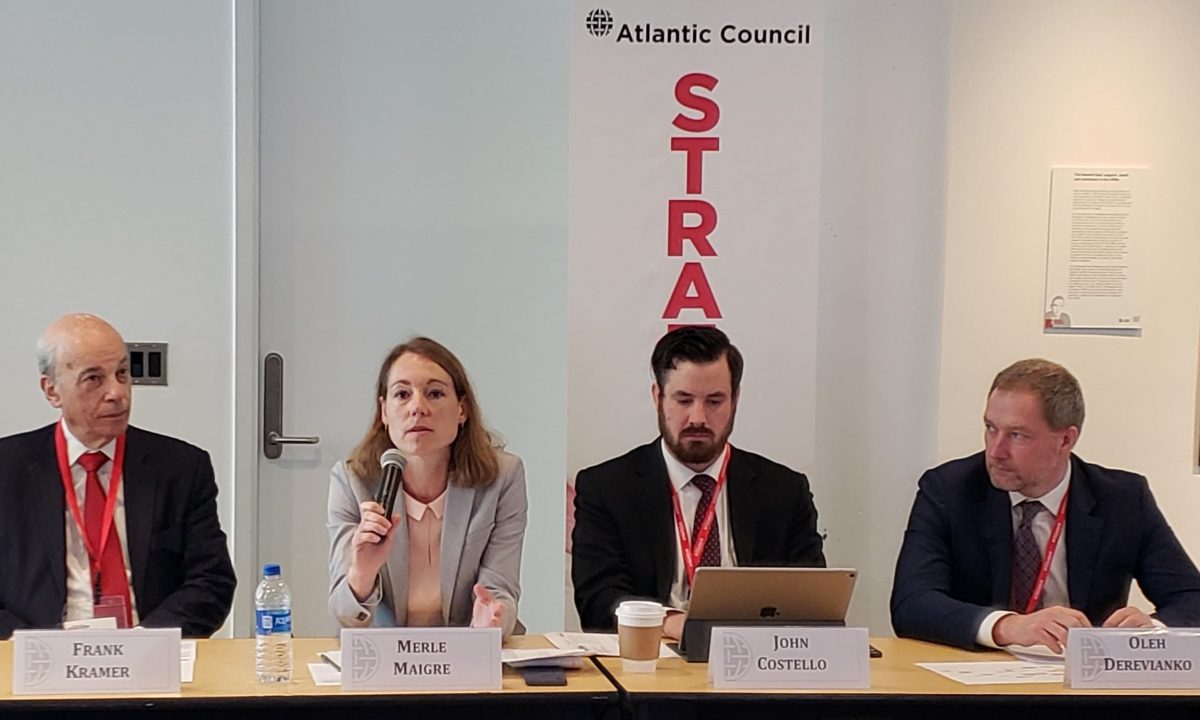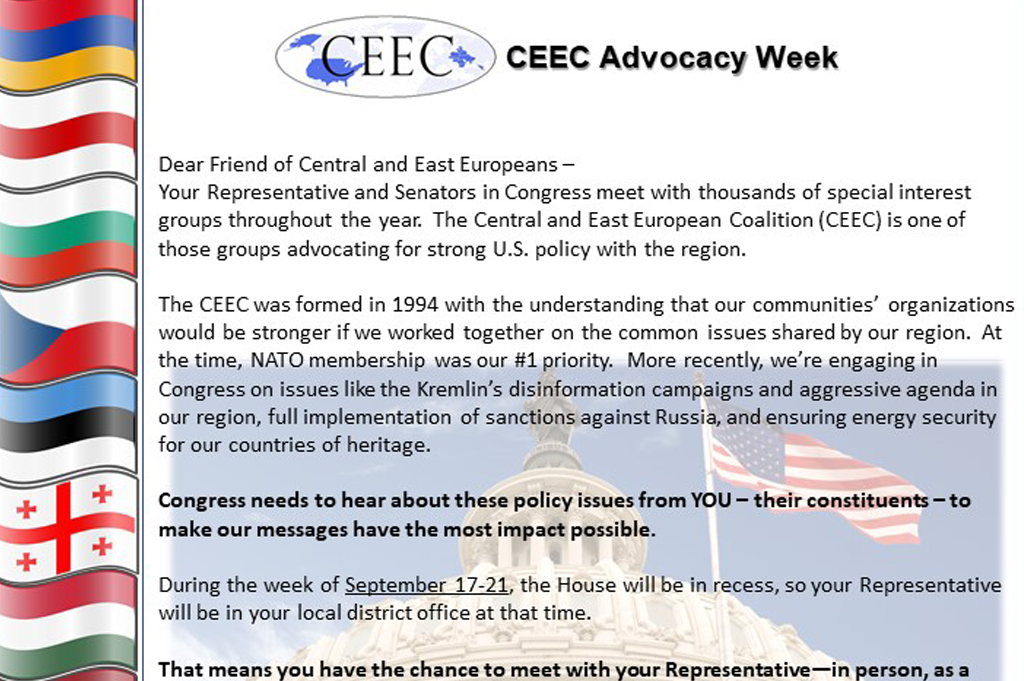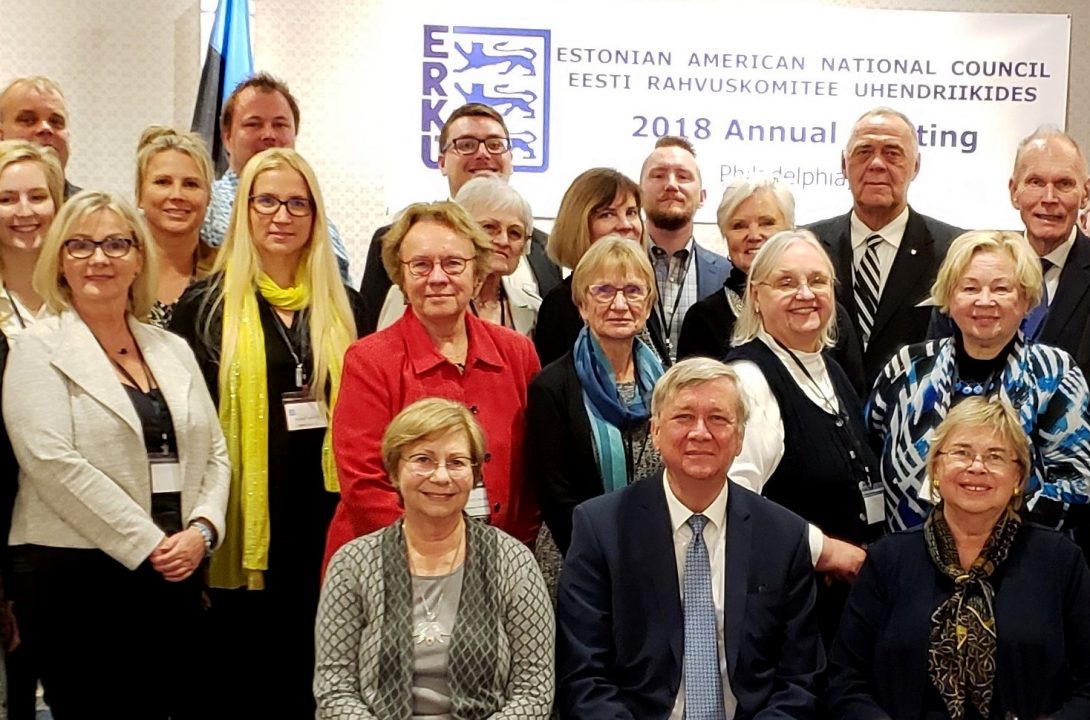
EANC 2018 ELECTIONS / ERKÜ VALIMISED
June 15, 2018
EANC supported the #StopMilitaryAggressionInUkraine protest
November 27, 2018Two Washington think tanks recently held their annual events looking at the security situation and hybrid threats in the transatlantic sphere. Both featured Estonian officials speaking on strategic communications, cyber security and hybrid warfare. EANC’s Washington, DC Director Karin Shuey caught up with the Estonian guests at both events.
In late September, the Center for European Policy Analysis (CEPA) hosted its tenth annual CEPA Forum, which bills itself as, “the leading annual transatlantic conference in Washington D.C., representing the largest gathering of European officials, experts and industry leaders in the United States.” This year’s featured participants included Commander of U.S. European Command and NATO Supreme Allied Commander General Curtis Scaparotti, U.S. Special Representative for Ukraine Negotiations Ambassador Kurt Volker, and foreign and defense ministers and senior officials from the Czech Republic, Estonia, Hungary, Poland, Latvia, Lithuania, Norway, Slovakia, Romania and NATO. More information and video coverage from the event are available at cepaforum.org.
Estonia was represented by Mr. Indrek Sirp, currently the Director of National Security and Defense Coordination of the Government Office (Riigikantselei) and former Defense Counselor at the Embassy of Estonia in Washington. He participated in a panel discussing strategy for containing hybrid challenges in the 21st century. The panel highlighted Baltnews as a prime example of a Russian government-funded news outlet that on the surface looks like a legitimate, independent website while actually engaging in an aggressive disinformation campaign guided by the Kremlin.
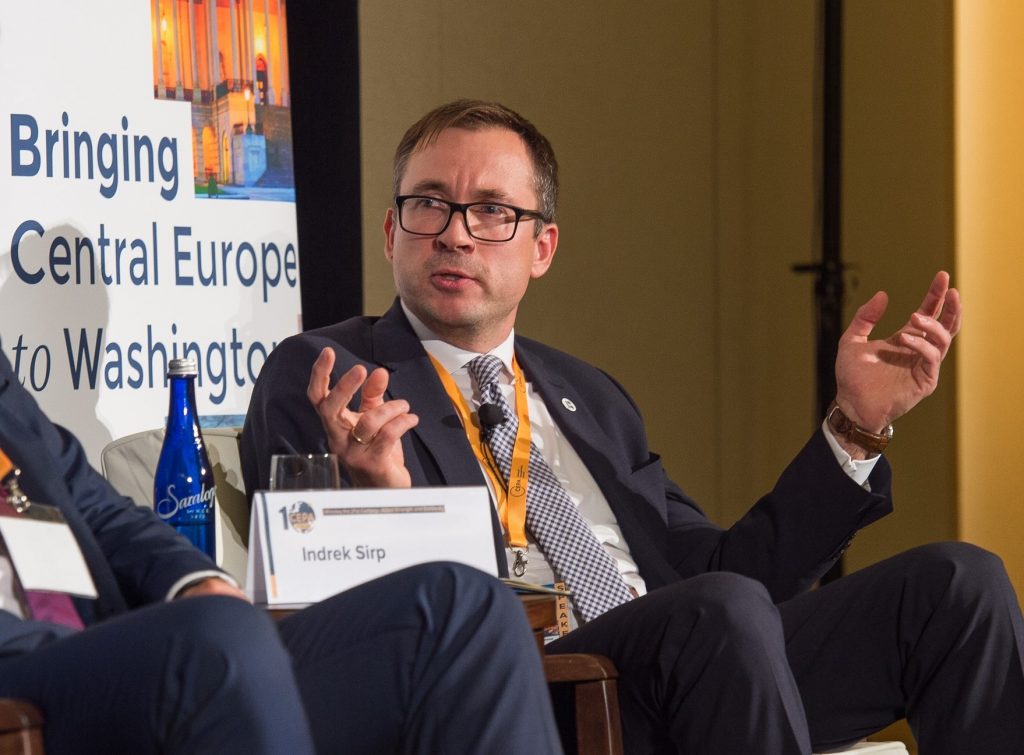 Indrek Sirp at CEPA Forum (Photo courtesy of CEPA)
Indrek Sirp at CEPA Forum (Photo courtesy of CEPA)
The panelists then discussed means that have been effective in practice for combatting hybrid threats. They commended organizations like the NATO Strategic Communications Centre of Excellence in Riga, Propastop in Estonia and the new European Centre of Excellence for Countering Hybrid Threats in Helsinki, which focus on exposing the sources of disinformation and publicly assigning attribution that clearly identifies agents of the Kremlin’s information warfare. Once identified, an international interagency response based in allied solidarity and trust is critical to ensuring that the exposure and attribution are met with public acceptance and resilience. Finally, it is incumbent on individual nations to keep their own affairs in order by effectively addressing corruption and money laundering within their borders. The panel ended by observing that nations that have successfully eradicated their own corruption issues are also successful in resisting hybrid tactics and strategies employed against them.
In early October, the Atlantic Council hosted its Global Forum on Strategic Communications and Digital Disinformation (StratCom DC), which took a closer look at disinformation campaigns and cyber operations, their employment of false narratives, their manipulation of political processes and the West’s slow response to the growing threat. Featured speakers included Senator Chris Murphy (D-CT), Secretary of Homeland Security Kirstjen Nielsen, Swedish Ambassador to the U.S. Karin Olofsdotter, and former CIA director General Michael Hayden. Two Estonians were also featured panelists during the off-the-record second day of the event. More information and video coverage of this event are available at stratcomdc.org.
Ms. Merle Maigre is currently the Executive Vice President for Government Relations at CybExer Technologies, an Estonian firm that specializes in providing governments and organizations with cyber training and sophisticated, large-scale cybersecurity exercises. She shared her expertise on a panel covering cyber threats to critical infrastructure and a showed a video of this year’s multi-national Locked Shields exercise based in Tallinn. Since 2010, Locked Shields has simulated live-fire cyber attacks using fictional scenarios to practice defense of national IT systems and critical infrastructure. Ms. Maigre’s extensive background in these topics is based in her previous experience, including serving as director of the NATO Cooperative Cyber Defense Center of Excellence in Tallinn, as security policy advisor to Estonian Presidents Kaljulaid and Ilves, and NATO positions in Brussels and Kyiv.
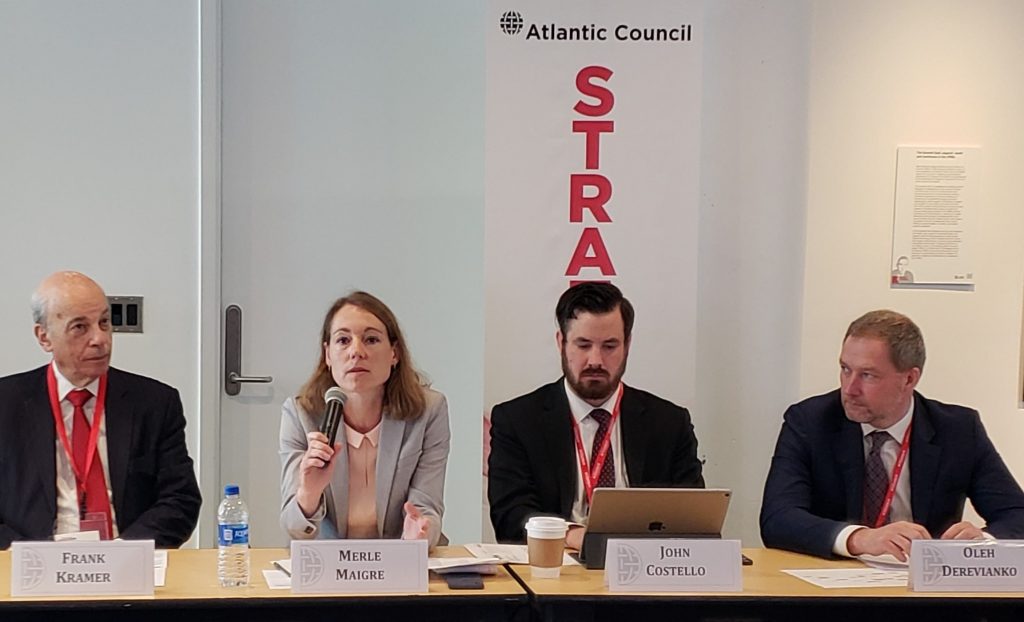 Merle Maigre at StratCom
Merle Maigre at StratCom
Ms. Liisa Past is the Chief Research Officer for the Cyber Security Branch of the Estonian National Information System Authority (Riigi Infosüseemi Amet) and participated in a panel discussion on legal frameworks to address influence operations. Her work has focused on information security and the social and political impact of technology. Recently, her comprehensive risk assessment of technology used in elections in Estonia was the basis of interagency cooperation on election security there. She will be back in Washington on this topic in October for a seminar on election security hosted jointly by the Embassies of the Czech Republic and Estonia. She is also currently a Next Generation Leader fellow at the McCain Institute for International Leadership. During this nine-month fellowship at Arizona State University, she will work on developing through collaboration at the university new ways to bolster long-term cyber defense planning in Estonia.
EANC is thrilled to have so many talented Estonians invited to the U.S. to share their expertise. U.S. organizations clearly recognize the value Estonian experts can add to their events. EANC will continue to track Estonians participating in key forums and keep Estonian Americans informed on the range of topics they’re contributing to.

